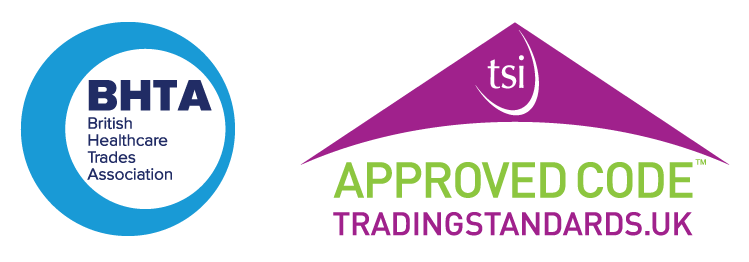How to prepare for getting a pet
8th November 2022
Animals make the best of friends and can be especially beneficial for older people when kept as pets, as they can help with loneliness and improve mental and physical health. This has been proven in numerous studies, with the government also encouraging local authorities to recommend pet ownership to those who may be socially isolated.
For example, research carried out by Cats Protection showed that older people benefited from having a feline friend, with 80% of owners aged over 55 believing themselves to be happier than non-cat owners. 50% also said that their cat had helped them in a time of crisis while 46% felt that their cat had helped them to cope better with bereavement.
Having a pet can also stimulate physical health - whether that's through a daily dog walk or simply moving more to tend to your pets needs like feeding, grooming or playtime. So, if you often use a home lifts for the disabled and want to become more mobile or often ask yourself whether you would benefit from getting a pet and have decided that the answer is yes, our article should be able to help you prepare for your new companion’s arrival.
Prepare yourself and your family
While the idea of getting a pet is very exciting, it’s important that you are 100 % sure that you are happy with your decision before committing. It is highly recommended that you meet the cat or dog you would like to give a home to in order to establish a bond, with a positive gut feeling usually a sign that this is the right thing to do. You should also let your family know your intentions, just in case they have any advice, but also so that they are aware that you will have a new ‘resident’ should they come and visit.
Prepare your home
While your home may be adapted to your specific needs with aids like wider door frames, smart speakers and stairlifts, it’s essential to make sure that it caters for your pet too. They will need a place to sleep, access to the toilet (the garden), and an area to feed, which you will have to provide. You will also want to protect your furniture and remove any objects that could be a potential hazard to your four-legged friend as well.
For dogs
When it comes to adopting or buying a dog, there are so many things to think about and dogs can often be very demanding and require a lot of time and attention. Certain breeds will need more walking and attention than other breeds so this should be considered when you’re choosing the breed. Below are just some of the items you should consider thinking about buying before bringing a new dog home.
Poop scooper
A poop scoop is always a wise tool to have, especially for use in the garden. For those who have limited mobility, a poop scoop is a better choice than using poo bags as it saves having to bend down and get low to the ground.
Food and water bowls
Obviously, food and water bowls are essential when buying a pet, so it is important to have these ready prior to bringing your new dog home.
Dog flap
You may think that only cats use a flap in the door to get out into the garden, but for those with limited mobility, a dog flap is a great idea. A collar-controlled dog flap means that you don’t have to get up and down frequently to let the dog out to the toilet.
Easy-to-clean bedding
Dogs and especially puppies aren’t always toilet-trained when you bring them home, so having easy-to-clean bedding that can be popped in the washing machine is always wise.
There are also a few simple things new owners can do to make sure homes are suitable and safe for a new dog, such as these suggestions made by the Kennel Club, which is the largest organisation dedicated to promoting the health and welfare of dogs:
“Make sure any items or substances that can be poisonous to dogs are stored well out of reach of your pet. Foodstuffs such as chocolate, onions and even blue cheese can be poisonous to dogs, as are most household cleaning products. The Kennel Club has a dedicated poison guide to make owners aware of what can be harmful for dogs.
“Ensure that any small objects that could be mistaken for food are cleared away and kept out of reach to avoid dogs choking. Secure the garden – a simple fence around your garden can prevent a dog from wandering away, getting lost or being exposed to traffic. Installing dog gates in the house can be a good way to prevent your pet from going into rooms you’d rather he didn’t, or from going up and down the stairs freely.”
For cats
When it comes to getting a cat, many of the same requirements apply as when getting a dog although they don’t require daily walks and are often more independent, so buying things like food bowls, easy-to-clean bedding and a poop scoop should also be on your list, but there are a few more specific things to also consider, including creating areas in your home.
· Create an area for food and a separate area for water.
· Have at least one litter tray placed as far away as possible from their eating area.
· Create somewhere for them to hide.
· Allow them access to a high spot where they can view their surroundings.
· Create a suitable place for them to sleep or, ideally let them choose a location.
· Buy a scratching post.
· Buy a few cat toys and create a space for them to play.
Prepare your finances
People often only consider the initial costs when adopting a pet, but there are also long-term expenses which you must be aware of. It is advised that you budget for your pet’s weekly food allowance, and as vets’ bills can come at any time, it is also handy to have some money put aside should your faithful friend fall ill or get injured. If you’re planning to get a pet, then insurance for them and their needs is essential.
Looking after your pet
Once your pet is finally settled into your new home, it will be time to take care of your loyal companion for the many years you will now share together. Aside from feeding and providing love, you will also need to look after your pet in a number of different ways; keeping their coat clean, maintaining healthcare, and ensuring they get the correct exercise. Find tips from the experts at the PDSA below.
“Owning a pet means making sure they are kept healthy and protected from preventable illnesses. Make sure they are vaccinated, neutered, microchipped, treated regularly for fleas and worms, and receive veterinary treatment when needed.”
If you're worried about what may happen to your pet should it outlive you, then there are a number of ways you can ensure that it still receives great care once you are gone. Cats Protection offers a Cat Guardians program, which helps owners make arrangements for their pets should they need to find a new loving home. Find out more here.
Decided owning a pet is not for you?
If you’ve read this article and it has made you rethink getting a pet, then there are still many ways that you can interact with animals. Pets as Therapy is a national charity founded in 1983 and enhances lives in the community by providing companionship and friendship, as well as helping to tackle loneliness:
“We enhance health and wellbeing in the community through the visits of trusted volunteers with their behaviourally assessed animals. We provide a visiting service in hospitals, hospices, nursing and care homes, special needs schools and a variety of other venues all across the UK.”
Your local animal re-homing centre may also have options for dog walking, with the opportunity to see the other unwanted pets such as cats, who will appreciate your love and affection even if you are unable to take them home. You could also talk to friends who have animals, in case they would like help with taking care of their pets. For more useful guides like this, take a look at our blog.
This news article is from Handicare UK. Articles that appear on this website are for information purposes only.




